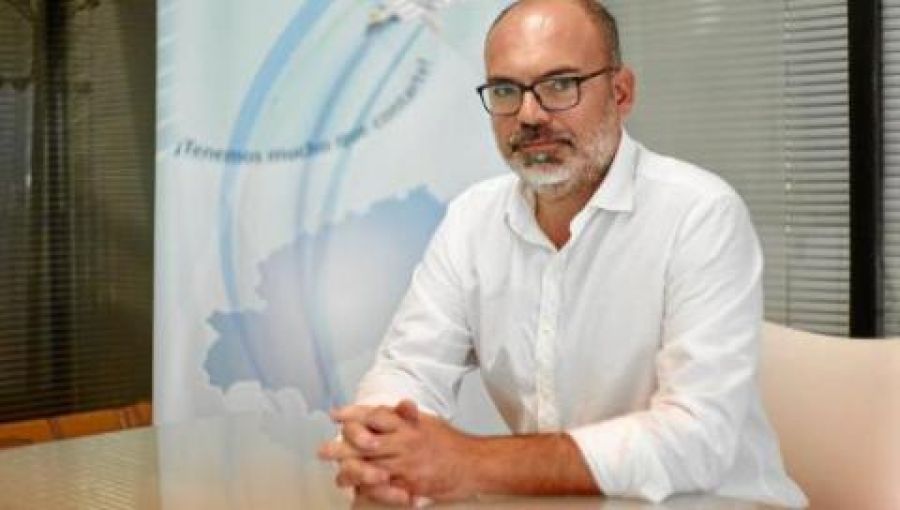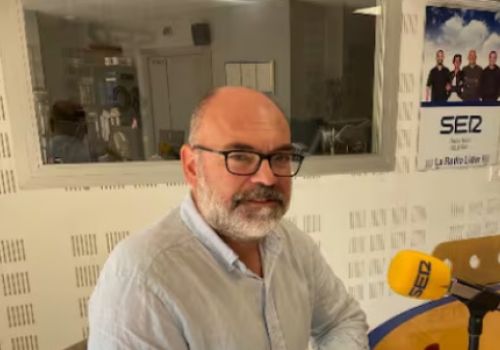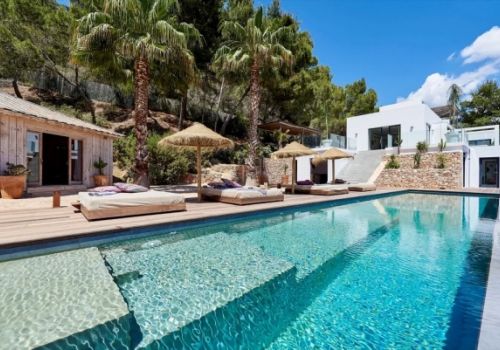José Antonio Llano: "66% of Ibiza's holiday homes suffered a scam this summer".

-How do they carry the tag of homeowners for millionaires?
There are properties for all types of clients. In addition, most of the houses we market are owned by Ibizans who, following the legalisation of these properties, have renovated them and offer them to all types of public. It is true that there are many people who come to Ibiza with a lot of money. But there are houses for all kinds of clients. It is true that they are expensive houses, but Ibiza has a name and they are expensive houses compared to other destinations. We market detached properties, ranging from one to six bedrooms at first, but since 2015 we have added two more and a third. In reality there are homes with many more rooms, outside the regulations and not regularised.
-What do you think of the controversy about the lack of housing in Ibiza when, at the same time, so many houses are only used for a few months in summer for tourism?
It is true that there is a housing problem on the island. That is obvious. I myself have problems finding staff to work in the summer. But I wouldn't blame the problem on these single-family homes. We market a product that is not intended for residential accommodation. Another thing is if we talk about tourist flats, which can affect the lack of housing more. The type of house we offer is not a model for a worker who comes to work on the island for six months.
-How do you see the decision of the Ibiza Town Hall to ask for a ban on the tourist rental of flats and single-family houses in the municipality?
Well, this is a first request from the City Council. But we don't like the fact that tourist rentals in single-family houses are going to be banned. We are against banning what is not regulated or in multi-family buildings, but our houses are a specific product for tourism. I don't think they are the reason for the lack of housing on the island.
-What is the trend in this business and is it still growing on the island?
It remains the same. What we have seen in recent years is that the average stay is decreasing. Maybe it's because of prices, since Ibiza is expensive, as I said before. The client compares with other destinations. And then there is the rise of online platforms, which in principle we are not against, although we ask that the properties advertised there are regulated and have a registration number. They offer legal and illegal housing and thus encourage stays of a day or two. This lowers the average stay. As far as prices are concerned, in recent years there have been some people who have raised prices to the point of madness. We advocate restraint, because not everything is fair. The price has to correspond to the quality of what is offered.
-But the feeling is that you can ask for whatever you want, that there will always be someone who will pay for it.
This is the problem. But in the long run, this is counterproductive for us. We cannot keep going up, because there will come a day when Greece and Turkey will recover and we will suffer.
-What percentage of the sector does the Tourist Rental Housing Association represent?
We are about 200 members, of which about 30 are marketers and the rest are owners. We want to increase the number of members. Now we are also going to promote the website to fight against intrusion and scams on the internet. We want a powerful website to know whether each property is legal or not, so that people know what they are booking. And we want to create a distinctive seal so that people know that everything is legal, that the house has insurance and other guarantees.
-Are there many scams in this sector?
Yes, unfortunately. And it is increasing. There are people who hire people without resources, unemployed, as front men, open a current account in their name, advertise houses whose photos they steal from a website and then rent them out. When the client comes to Ibiza, the supposed company has disappeared. These are scams that come from fake websites, but the big portals should also control a little more who is the owner of the houses they advertise. There are times when you advertise your house and it turns out that you find it on a different website. A person has uploaded it to that other website, cheating you. Those websites should have demanded proof of ownership of that house. I think the big portals could do a lot more to control this.
-But what percentage of scams are we talking about?
According to a survey conducted by the association at the end of last season, based on 16 marketing companies, 66% had encountered customers who had signed fake contracts with fake companies or fake websites. But I can assure you, among owners, there have been many more cases. There have been agencies that have had, in the summer, six or seven bookings for the same house, and all of them false. Most of the clients had paid part or all of the money, and when they arrive on the island, there is no house. This is a fatal image for the island and, of course, fatal for the official marketer of that house, because it looks as if he has pulled a scam, when he has been one of those who have been swindled.
-Do all the houses in your association have a tourist registration number?
All of them have submitted a responsible declaration to the Consell, and many have submitted the application for a tourist licence, but half of them are still awaiting inspection by the Consell due to a lack of resources. This does not mean that they are illegal, because they can operate legally with the responsible declaration.
-What is the typical profile of the tourists who rent these houses?
It is a very varied profile. Sometimes large houses are rented by a group of friends who come to spend a few days, but also by a family with their children. It is a type of tourism that spends a lot on the island and helps to distribute the wealth generated by tourism. I am referring to the legal houses.
-Are there many illegals?
They are almost twice as high as the legal ones.
-And is it possible to combat this in any way, given that the Consell has no means?
New regulations requiring marketers to advertise the tourist registration number of the house may help to control this.
-You reject tourist flats, but is it simply because they are in competition with you?
Well, and because it is not the best thing for Ibiza to have multi-family buildings in which residents and tourists mix. Another thing is that there are tourist areas that can make these uses compatible.
-Is there much involvement of foreign entrepreneurs in the ownership of these houses?
Most of the owners of these houses are Ibicencan families, who have renovated these houses and usually own one or two. This does not mean that there are not some foreigners as well.
-Many of these houses end up as private discotheques; do the owners exercise any control over these activities or do they just rent them out to whomever they want and ignore it all?
The owner is on standby. It is true that there has been a lot of controversy lately about parties. We are against our properties being used for illegal parties. They are for the tenant's residence, and maybe a small celebration, but not parties with an uncontrolled number of people and loud music. That is what we want to avoid.
-And how do they avoid it?
Well, over the years and with experience you realise what kind of requests you get. If you get a request and it's for one or two nights and it's a group of friends, you say no. You say no.
-In other words, in the end it comes down to the individual owner's sense of responsibility.
Yes, and of each marketer. The marketer is the first to ensure that this does not happen. The responsibility also lies with him in case there is a sanction. It is not only the owner who is responsible. The problem on the island is that there are not enough means to control this. I don't know if it's because of the Montoro Law or not, but the truth is that there are not enough.
-But do you really believe that there is awareness among homeowners and marketers that houses should not be turned into nightclubs?
I think so, because we are on an island with houses close together. Nobody is interested in your neighbours complaining and creating an alarm in the area.
SOURCE: DIARIO DE IBIZA, 4 MARCH 2018
Joan Lluís Ferrer - Eivissa








